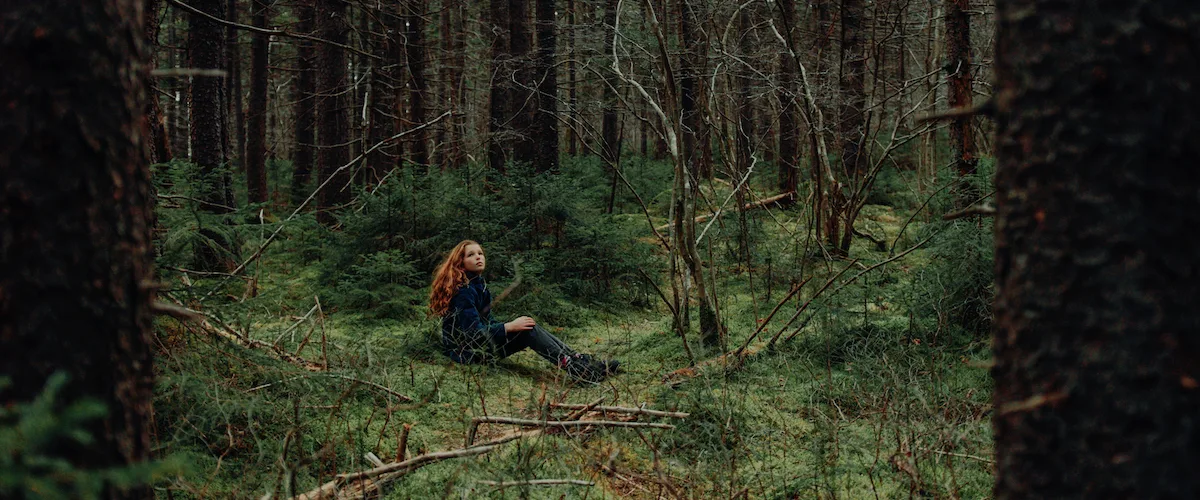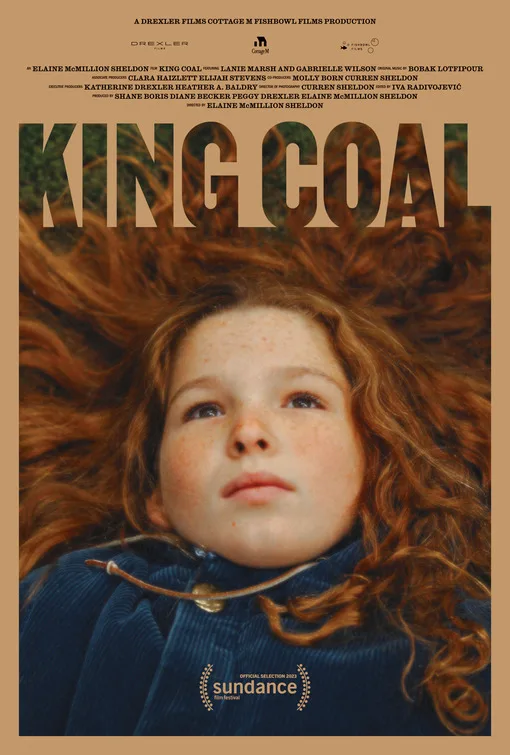Elaine McMillion Sheldon’s poetic documentary “King Coal” is a lyrical tribute to the place she calls home. Filmed in Central Appalachia—including the director’s home state of West Virginia—“King Coal” moves beyond shallow impressions of the region with a real love for her neighbors and prodding questions about what it means to identify with an industry that has harmed and exploited generations of families.
Spoken about like a fallen monarch, the coal industry’s history and influence are discussed through voice-over and residents’ stories. Today, we find King Coal in a less illustrious state, but it still permeates the culture like black coal dust floating in the air. There are scenes of runners hit with handfuls of coal dust for fun, a coal drop to stand in for the Times Square New Year’s ball drop, a miner showing a piece of coal to a classroom, a coal shoveling exhibition, a coal-centric pageant where beautiful young contestants dedicate their dance performances to the miners who’ve lost their lives, and a local sports teams named the Miners. But the view of coal is much murkier than that, both physically when McMillion Sheldon takes her camera into the mines and when exploring the harmful legacy of how coal companies discriminated against nonwhite miners, exploiting workers to the point of fighting back by unionizing, and where plenty still lose their lives today.
Gone are the days when mining companies tried showing off their employees’ white picket fences in the 1930s as a source of pride and a sign of upward mobility. Now, coal brings up a mix of emotions: an unmistakable pride in surviving the deadly conditions of working in a mine, bitter memories of how the companies have treated miners, early deaths, or, more horrifically, whispered stories of gruesome job accidents that maim or kill poor workers deep below the surface. Whatever the feeling, old miners, like the narrator’s grandfather, are still attuned to the changes in noises and vibrations around them, a sense they developed to survive in the mines. They carry those memories in their bodies like no one else can.
Outside the mines, acres and acres of earth make for a gorgeous canvas for McMillion Sheldon, her husband, and cinematographer Curren Sheldon. They film the land in such a way as to make the ground feel mystical—enchanted green forests with thick carpet-like moss, fluffy white snow as far as the eye can see, the multicolor splendor of fall and crunchy leaves rattling in the wind, and the rainy dewiness of spring in its hazy splendor. Throughout the film, we follow a young girl who does not yet know of all of coal’s complexities, but she’s well aware of its prominence on school trips and class projects. She and another young girl dance and play together against the landscape, a freeing innocence that allows them to skip along dirt roads or lay out on a bed of moss. Her movement through the film, choreographed by the talented dancer and filmmaker Celia Rowlson Hall, is part of McMillion Sheldon’s tribute to the region as if the young girl was similarly inspired by her world’s beauty, wonder, and complications.
In a sense, “King Coal” feels like a eulogy for a difficult relative, one who brought people together but burned almost as many bridges as they made. McMillion Sheldon, who also wrote “King Coal,” begins the film with a funeral procession walking along a dirt road along rolling green hills that could have doubled for Ireland were it not the pointy tips of mountains among foggy clouds behind them. Her narration speaks of the land as “a place of mountains and myths” and is open about its many contradictions. When speaking of her childhood, she said of the all-mighty hold coal had on those around her, “I remember learning that if I said anything bad about the King, I was betraying my loved ones.” After taking a winding road through history and memories, it all builds to her final question: “Who are you without a king?” What will they rally around and celebrate instead? The answer lives with the survivors, those who have yet to write their history.
Now playing in theaters.




















